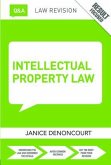In the new 'knowledge-intensive economies' Intellectual assets increasingly play a key part on balance sheets. There is an increasing global awareness that in order to promote innovation and the growth of the economy, businesses must fully recognise and exploit their intellectual assets. A company's ability to innovate rapidly and successfully is now regarded as essential and most breakthroughs are made by Small and Medium-sized Enterprises (SMEs), usually with no in-house legal professionals to help them. It is essential that those working with or creating intellectual property rights (IPR) are aware of the basics of Intellectual Property Law.
Intellectual Property Asset Management provides business and management students at all levels with an accessible-straight-forward explanation of what the main Intellectual Property rights are and how these rights are protected. Locating the subject squarely in a business context and using case studies and examples throughout drawn from a wide range of business organisations, it explains how an organisation can exploit their rights through licensing, franchising and other means in order to make the best possible use of their IP assets.
This book will provide students with:
- the basic Intellectual Property law knowledge needed to identify a potential IP issue
- the tools and understanding to assess an IP breach
- the ability to identify where the problem cannot be solved in house and where expert legal assistance is required
- the knowledge required to work effectively with lawyers and other legal professionals to achieve the desired outcome
Intellectual Property Asset Management provides business and management students at all levels with an accessible-straight-forward explanation of what the main Intellectual Property rights are and how these rights are protected. Locating the subject squarely in a business context and using case studies and examples throughout drawn from a wide range of business organisations, it explains how an organisation can exploit their rights through licensing, franchising and other means in order to make the best possible use of their IP assets.
This book will provide students with:
- the basic Intellectual Property law knowledge needed to identify a potential IP issue
- the tools and understanding to assess an IP breach
- the ability to identify where the problem cannot be solved in house and where expert legal assistance is required
- the knowledge required to work effectively with lawyers and other legal professionals to achieve the desired outcome








